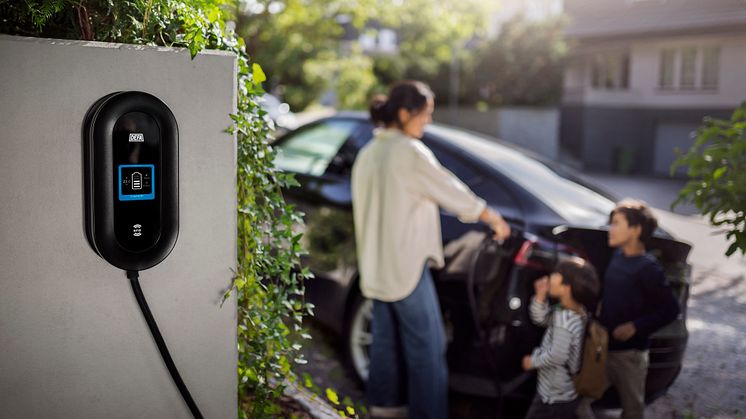
Press release -
New Study: The Majority of EV Owners are Missing out on Significant Savings
In a new study conducted by DEFA, the charging habits of thousands of EV owners have been analyzed. It reveals, among other things, that the majority of drivers charge when electricity prices are at their highest. This means that they are losing money and missing out on significant savings.
An analysis of electricity prices over a year also shows that smart charging has a game-changing impact on the electricity bill.
“In just one year, you could be counting hundreds of Euros in savings, possibly even covering the entire cost of your charging station. And the best part? It’s all thanks to a feature that is completely free,” says Anders Granquist, Executive Vice President of DEFA.
We’ve entered a ‘new normal’ with energy prices consistently higher than before and wildly unpredictable because hourly prices fluctuate increasingly throughout the day. Charging an EV at home now requires a smart strategy. It’s not just about plugging in; it’s about timing your charge to outwit these fluctuating prices.
Significant difference for those who go against the current when charging their EV
The new study, where DEFA has mapped both users' driving patterns, EV charging habits, and electricity prices, shows how much of a difference it makes to charge smart.
Tips for those who are new to economizing on home EV charging: a good starting point is to adjust your charging schedule. Traditionally, charging your EV overnight, ideally after 21:00 and stopping before 08:00 AM, has been an effective method. This is because energy prices generally spike during the busy morning rush starting around 08:00 and then again from 16:00 until late in the evening, as households ramp up their energy usage.
However, this conventional approach of charging at night isn’t the most efficient strategy anymore. In today’s dynamic energy market, the EV owner needs something more sophisticated – an advanced smart charging program. Such a system does more than just charge your car during off-peak hours. It actively monitors the energy prices for the next day, choosing the most cost-effective hours for charging based on when you need your car ready and how much charge it requires.
“Being economical doesn’t mean following the majority of EV owners who come home from work and plug in their cars. We’ve analyzed thousands of transactions and found that most people charge their cars between 4 PM and 9 PM, just when the prices hit the roof”, says Anders Granquist.
This is how private individuals with home chargers can save hundreds of Euros
An EV driver who owns a home charger will use this 85 % of their vehicle charging needs. This adds up to a hefty 2,400 kWh every year. If that person switches to EcoMode, you are charging smart and saving money. Imagine shaving off 2,2 Euros for every charge. This month (January) you could be pocketing an extra 18 Euros based on prices so far this year. And when you hit the end of the year? Based on an annual average, you’re looking at at least 132 Euros in potential savings.
If you drive a lot and clock in 45,000 kilometers annually, like many drivers do in the Nordics, EcoMode is virtually paying for your entire charging station in nearly one year.
“This isn’t just a tip; it’s a financial hack for the wise EV owner”, says Anders Granquist.
So, what’s the solution? For the EV driver who owns a DEFA Power, you can activate the free function EcoMode in the PowerSmart feature within the DEFA Power app. EcoMode fetches current prices with estimates for the next 24 hours from NordPool, allowing you to charge when the spot prices are at their lowest.
DEFA Power is available in the Nordics.
DEFA plans further expansion into other EU countries in 2024, including the UK, and North America. The company is also working on launch plans for selected markets in Asia.
Related links
Topics
Categories
DEFA is a family-owned Norwegian technology company established in 1946, with employees in seven countries on three continents. For more than 75 years, we have evolved from a local family business to an international charging company, driven by the search for new connections between technology and people.
For more information, please visit https://www.defa.com/



